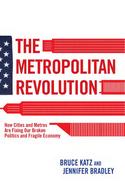Middle-skill jobs are in the same camp as green jobs, STEM jobs, and other groups of occupations that garner lots of attention: They can be defined many ways, by many rubrics. Regardless of the definition, however, it’s clear that middle-skill, or middle-wage, jobs have been in decline for years. read more »
Newgeography.com - Economic, demographic, and political commentary about places
Middle-Wage Jobs That Have Survived, and the States That Are Fostering Them
Shenzhen II?: The New Shanghai Financial Free Trade Zone
Less than 35 years ago, China established its first special economic zone in Shenzhen, a prefecture (Note) bordering Hong Kong. This model is about to be expanded with the establishment of a new financially oriented free-trade zone in Shanghai, which could prove a major breakthrough in that city’s quest to become East Asia’s financial capital. read more »
Cashing in on So Cal Culture
Southern California has always been an invented place. Without a major river, a natural port or even remotely adequate water, the region has always thrived on reinventing itself – from cow town to agricultural hub to oil city, Tinsel Town and the “Arsenal of Democracy.” read more »
Twitter And The Real Economy Of Jobs
With Twitter’s high-profile IPO, the media and much of the pundit class are revisiting one of their favorite themes: the superiority of the brash, young urban tech elite, who don’t need to produce much in the way of profits to be showered with investor cash. Libertarians will celebrate the triumph of fast-paced greed and dismiss concerns over equity; progressives may dislike the easy money but will be comforted when much of it ends up supporting their candidates and causes. read more »
Viewing McJobs From the Flip Side
The headline read, “We Have Become a Nation of Hamburger Flippers: Dan Alpert Breaks Down the Jobs Report.” Seems that Alpert, the managing partner of New York investment bank Westwood Capital, LLC, was unhappy that most of the jobs created in July were for low-wage workers. read more »
Exporting Metros
If there’s one thing that people of pretty much every political persuasion agree on, it’s the need to boost exports. This is true not just at the national level, but also the local one. The balance of world population and economic growth is outside the United States. McKinsey estimates that there will be an additional one billion people added to the global “consuming class” by 2025. An economy focused solely on a domestic American or North American market is missing a huge part of the addressable market, dooming it to slower growth. read more »
Driving Alone Dominates 2007-2012 Commuting Trend
New data from the American Community Survey makes it possible to review the trend in mode of access to employment in the United States over the past five years. This year, 2012, represents the fifth annual installment of complete American Community Survey data. This is also a significant period, because the 2007 was a year before the Lehman Brothers collapse that triggered the Great Financial crisis, while gasoline prices increased about a third between 2007 and 2012. read more »
Bipartisan Distrust of the Beltway
Much has been written and spoken about the deep divide between “red” and “blue” America, but the real chasm increasingly is between Washington and the rest of the country. This disconnect may increase as both conservatives and liberals outside the Beltway look with growing disdain upon their “leaders” inside the imperial capital. Indeed, according to Gallup, trust among Americans toward the federal government has sunk to historic lows, regarding both foreign and domestic policy.
The debate over Syria epitomizes this division. For the most part, Washington has been more than willing to entertain another military venture. This includes the Democratic policy establishment. You see notables like Anne Marie Slaughter and the New York Times' Bill Keller join their onetime rivals among the neoconservative right in railing against resurgent “isolationism” on the Right. read more »
California’s New Feudalism Benefits a Few at the Expense of the Multitude
California has been the source of much innovation, from agribusiness and oil to fashion and the digital world. Historically much richer than the rest of the country, it was also the birthplace, along with Levittown, of the mass-produced suburb, freeways, much of our modern entrepreneurial culture, and of course mass entertainment. For most of a century, for both better and worse, California has defined progress, not only for America but for the world. read more »
You Say You Want A (Metropolitan) Revolution?
[Book Review] The Metropolitan Revolution: How Cities and Metros Are Fixing Our Broken Politics and Fragile Economy, by Bruce Katz and Jennifer Bradley. 2013, Brookings Focus Book
It's now decades after deindustrialization, and several years since the Great Recession supposedly ended. Yet too many American cities are still struggling to recover from the losses of jobs, population, taxes, and identities. Detroit’s declaration of bankruptcy in July drew new attention to the problem, and it helped fuel the extensive marketing campaign read more »




















